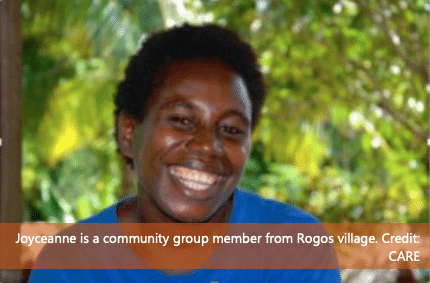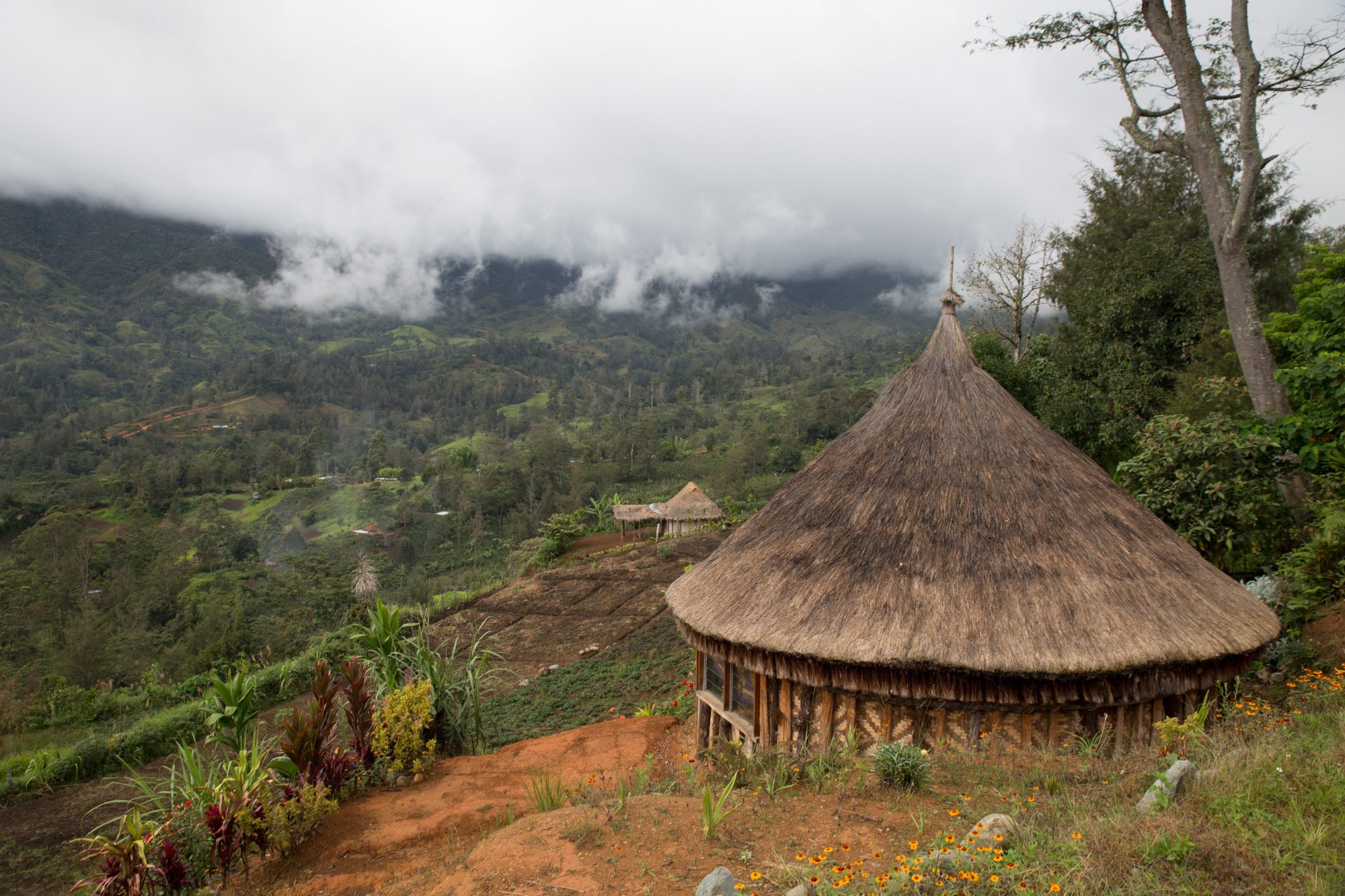Women as Drivers of Change in Papua New Guinea
Enhancing resilience through gender equality
Between July 2012 and June 2015, CARE implemented a community-based adaptation project in Papua New Guinea’s Nissan district – the remote atoll islands of Nissan and Pinepel, home to approximately 7,500 people. The project supported communities to increase their resilience to climate change through food and nutrition security, while reducing disaster risk and building adaptive capacity.
Nissan culture is traditionally male dominated, with limited participation of women in decisionmaking and clearly defined roles for women and men. To increase gender equality and women’s voice, CARE formed community groups that were women-centred, and included training in gender equality to raise awareness among women and men of the importance of gender equality to community resilience, and to encourage men and women to participate equally. As a result of CARE’s training, women and young people are playing a central role in the community-led groups, which support community members to learn about and practice risk reduction techniques.
The community-led groups were devised as a model to promote the adoption of risk reduction techniques within targeted communities. Each community group member – consisting of 20 to 30 members of equal genders – learned about the fundamental elements of climate change and adaptation, and were trained in various conservation farming techniques and nutrition, as well as key gender equality issues and basic principles of disaster risk reduction. Thus equipped, they passed on the new knowledge to fellow villagers and led by example.

Joyceanne Bonnie (Vice-President of the Pinepel Women’s group) was one of the first people on the islands to drive the formation of an island-wide community-led group. From her village of Rogos, it is a long way to walk to the other villages. But together with others, she picked up all the people who were interested from all three villages on the island.
“For many years, we have often wondered ‘this is a really long drought’. It was only when CARE came to Pinepel that we understood what was happening: climate change,” said Joyceanne.
Using the knowledge and skills gained as part of the project, Joyceanne and other group members set up an island nursery. Here, the members learned and practiced techniques such as mulching and “big hills” (a technique that keeps soil moist for longer), and nurtured the seedlings needed to set up kitchen gardens. She adopted these techniques herself, and she told others about the good results, encouraging them to follow suit.
“Today, almost everybody has a kitchen garden and uses mulch. Being in the group has let me learn so many new things. It has let me help my community and I see things are improving now,” said Joyceanne
For Joyceannee, the most significant change is the greater availability of water that came as CARE set up rainwater harvesting tanks across Pinepal. Yet, the droughts and the training have taught her to be water-wise.

The community-led groups are a strong mechanism for exchanging experiences in climate-resilient practices. This strong sense of ownership provides a solid foundation for sustained mutual learning within the community. These groups are also likely to sustain as they are not reliant on any one individual, an approach that allowed the project’s activities to be self-replicated across the island and ensured that, while direct training by CARE could only be delivered to approximately 150 people, the benefits of the project were disseminated and enjoyed island-wide.
